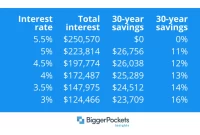Understanding Credit Scores: A Comprehensive Guide
What is a Credit Score?
A credit score is a numerical value that represents an individual’s creditworthiness. It is based on a person’s credit history, which includes information on how they have managed their previous borrowings and payments. Lenders use credit scores to assess the risk of lending money to someone and to determine the terms of the loan, such as interest rates and repayment terms.
Credit scores typically range from 300 to 850, with a higher score indicating a lower credit risk. The score is calculated using various factors, including payment history, amounts owed, length of credit history, types of credit used, and new credit applications.
Financial institutions and credit bureaus play a key role in evaluating and providing credit scores. They collect and analyze data from credit reports, which contain information from lenders, such as banks and credit card companies.
Having a good credit score is important as it affects an individual’s ability to obtain loans, credit cards, mortgages, and other financial products. A high credit score can result in more favorable terms and lower interest rates, while a low credit score may limit access to credit or lead to higher borrowing costs.
Understanding credit scores is essential for anyone who wishes to manage their finances effectively and build a solid credit history. By maintaining a positive payment history, reducing debts, and avoiding unnecessary credit applications, individuals can improve their credit score over time.
Factors Affecting Your Credit Score
In order to understand credit scores, it is important to be aware of the various factors that can impact your credit score. These factors are crucial as they determine your financial credibility and can affect your ability to borrow money in the future.
1. Payment History
Your payment history is one of the most significant factors influencing your credit score. Lenders want to see a consistent track record of on-time payments. Late payments, missed payments, or defaults can lower your credit score.
2. Credit Utilization
Credit utilization refers to the ratio of your credit card balances to your credit limits. High credit utilization suggests that you rely heavily on credit and may be a higher risk borrower. It is advised to keep your credit utilization below 30%.
3. Length of Credit History
The length of your credit history demonstrates your experience with managing credit. Generally, the longer your credit history, the better. This factor takes into account the age of your oldest account, the average age of all accounts, and the age of your newest account.
4. Credit Mix
Having a diverse mix of credit accounts, such as credit cards, loans, and mortgages, can have a positive impact on your credit score. It shows that you can handle different types of credit responsibly.
5. New Credit Applications
Every time you apply for new credit, it generates a hard inquiry on your credit report. Multiple inquiries within a short period of time can lower your credit score. It is important to only apply for credit when necessary.
6. Negative Marks
Bankruptcies, foreclosures, collections, and other negative marks on your credit report can significantly damage your credit score. It is crucial to address and resolve any issues as soon as possible.
Understanding these factors can help you take control of your credit score. By maintaining a positive payment history, managing your credit responsibly, and being mindful of new credit applications, you can improve your creditworthiness over time.
Improving Your Credit Score
A credit score is a crucial measure of your creditworthiness. Lenders use it to evaluate your ability to pay back debts and determine whether to approve your loan applications. If you have a low credit score, there are steps you can take to improve it:
1. Pay Your Bills on Time
Consistently paying your bills by the due date is one of the most effective ways to boost your credit score. Late payments negatively impact your score, so make it a habit to pay on time.
2. Reduce Your Debt
Excessive debt can harm your credit score. Aim to pay down your balances and keep your credit utilization ratio low. Try not to max out your credit cards and consider consolidating debts if necessary.
3. Monitor Your Credit Report
Regularly checking your credit report helps you identify any errors or fraudulent activities that could drag your score down. Dispute any inaccuracies and work towards resolving any outstanding issues.
4. Diversify Your Credit Mix
Having a mix of different types of credit, such as credit cards, loans, and a mortgage, shows lenders that you can handle various financial responsibilities. However, be cautious not to open too many accounts in a short period, as it can raise red flags.
5. Be Patient
Improving your credit score takes time, so be patient and stay committed to healthy financial habits. Avoid quick-fix schemes that promise instant results and focus on building a solid credit history.
By implementing these methods, you can gradually improve your credit score and increase your chances of obtaining favorable loan terms and interest rates.
Understanding Credit Score Ranges
In the realm of personal finance, credit scores play a crucial role in determining an individual’s creditworthiness. Lenders, landlords, and even employers often analyze credit scores to assess financial responsibility.
Credit scores are numerical values that summarize an individual’s credit history based on various factors, including payment history, credit utilization, length of credit history, types of credit used, and recent credit inquiries. Understanding credit score ranges is essential to comprehend the implications of credit scores on financial decisions.
Excellent (750-850)
Individuals with credit scores falling in the range of 750-850 are usually considered to have excellent credit. They demonstrate a strong history of timely payments, low credit utilization, and a long credit history.
Good (670-749)
Falling in the range of 670-749, a good credit score indicates responsible credit management. Individuals with good credit scores have a solid payment history and exhibit a moderate credit utilization ratio.
Fair (580-669)
A fair credit score ranging from 580-669 suggests a credit history that may include some missed payments or increased credit utilization. Lenders may view individuals in this range as moderate-risk borrowers.
Poor (300-579)
Individuals with credit scores between 300-579 face significant challenges when seeking credit. Late payments, defaults, or high credit card balances often contribute to poor credit scores.
Understanding the significance of credit score ranges empowers individuals to take necessary steps to improve their creditworthiness. By maintaining a positive payment history, keeping credit utilization low, and minimizing new credit inquiries, individuals can strive for higher credit scores leading to improved financial opportunities.
Conclusion
In conclusion, understanding credit scores is crucial in managing your finances effectively. By comprehending how credit scores are calculated and the factors that influence them, individuals can make informed decisions to improve their creditworthiness. Monitoring credit reports regularly and practicing responsible credit behavior are essential steps towards maintaining a healthy credit score and securing financial stability.




